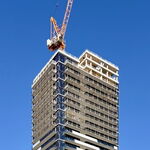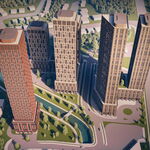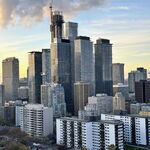T3G
Senior Member
Of course, I never argued anything to the contrary, I was just arguing about the means of transport selected. The suburbs should be serviced by transit, yes - and MUCH better transit than the garbage that they have to offer - but why does it have to be by TTC routes? What does the TTC gain from running an extended line 4 (after a financially intensive rebuild into a light metro, no less) into Mississauga and Oakville? At that point it would make more sense to hand the line over to Metrolinx, with its associated running costs.
I feel I don't need to point out that the TTC is a hugely cash strapped organization, and they should focus their limited resources on serving the city of Toronto instead of every community besides it. Every heavy duty extension of their service mandate outside of the city limits is a neglect of something the city needs. Like how we managed to get a subway up to Vaughan before ever building a Downtown Relief Line is beyond me.
I feel I don't need to point out that the TTC is a hugely cash strapped organization, and they should focus their limited resources on serving the city of Toronto instead of every community besides it. Every heavy duty extension of their service mandate outside of the city limits is a neglect of something the city needs. Like how we managed to get a subway up to Vaughan before ever building a Downtown Relief Line is beyond me.




